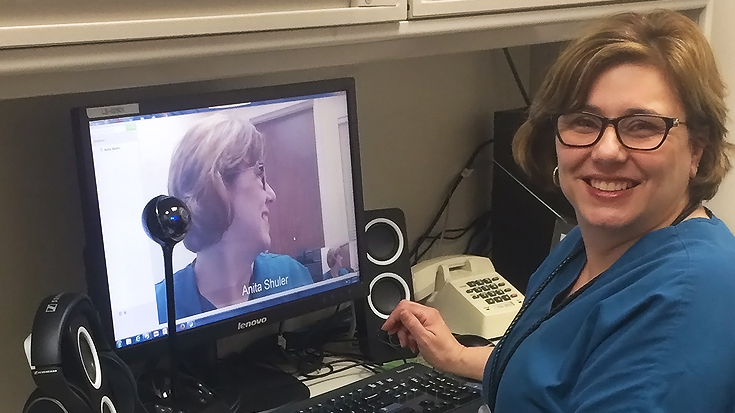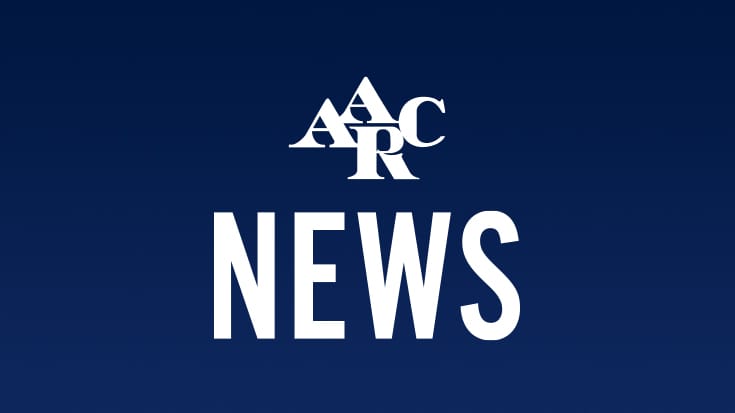
“Thank you so much for teaching me.”
Anita Shuler, RRT, AE-C, regularly hears comments like that from the children she provides asthma education to via a telehealth initiative operated by the Medical University of South Carolina (MUSC).
“The School Based Telehealth Program was started through the MUSC department of telemedicine,” explains Shuler, who serves as lead asthma educator at the MUSC Children’s Hospital. “Dr. Jimmy McElligott is the medical director and Kelli Garber is the school based telehealth nurse practitioner. Dr. Katie Cristaldi is our physician medical director. We all work very closely together.”
Support Telehealth and Write or Call Today
Pivotal role for RT
The program was created to connect with school children who are in need of intervention and controller medications. Says Dr. Cristaldi, “One of our ultimate goals is to help families understand their child’s asthma, improve adherence to treatment plans and controller inhaler use, and therefore decrease ED visits and hospitalizations, and in turn, decrease overall health care costs.”
Having an RT on board to cover the asthma education component has been crucial in getting the program up and running. “Anita has obviously played a pivotal role in education for individual children and their families,” continues Dr. Cristaldi.
The program works like this: from an office at MUSC Children’s, Shuler meets with the patient and the tele-presenter nurse at the school via a computer equipped with a camera and microphone. Each school in the program — there are currently about ten taking part in the initiative — has a telemedicine cart that enables the nurse and student to see Shuler on the computer screen and interact with her as she delivers the asthma education the student needs to manage his condition.
“The schools that we are currently in are rural and many families have a transportation problem, so they have difficulty attending the session,” says Shuler. “I have had parents and grandparents attend, but mostly just interact with the child and the tele-presenter nurse.”
The appointments are scheduled one day a week and Shuler uses the 15 minute sessions to provide instruction on spacer usage, trigger reduction, and recognition of warning signs. She also reinforces previous teaching on what to do during an asthma exacerbation.
“We spend a lot of time talking about rescue meds and controller meds and making sure that the patients and families understand the difference,” continues the RT. “We talk to the nurses and family members about consistency and building in a reward system to help with compliance. I also make the kids ask me at least one question, and we generally get more than a couple of questions from each patient.”
Outcomes on the way
According to Dr. Cristaldi, the program is examining Medicaid claims data for the state to decide on controller medication prescription fill rates, provider and ED utilization patterns, as well as hospitalization rates associated with the program. Dr. Cristaldi also shared that they are engaged in a cost savings analysis and patient satisfaction survey.
Shuler believes the data will bear out the value of the program. She and her colleagues have already been able to identify students who need to be monitored more closely to ensure their asthma is well controlled, and anecdotal information from school nurses involved in the initiative suggests success.
“The feedback from the school nurses has been positive, with many subjective reports of improved baseline, decreased rescue medication usage, and fewer visits to the school nurse for asthma symptoms,” she says.
Anita Shuler is proof positive that respiratory therapists can play a major role in telehealth programs for people with respiratory conditions. Earlier this week, the AARC PACT went up Capitol Hill to advocate for the inclusion of RTs in any telehealth legislation introduced into Congress this year, and you can do your part to reinforce that message by calling or writing your members of Congress today.
Email newsroom@aarc.org with questions or comments, we’d love to hear from you.












